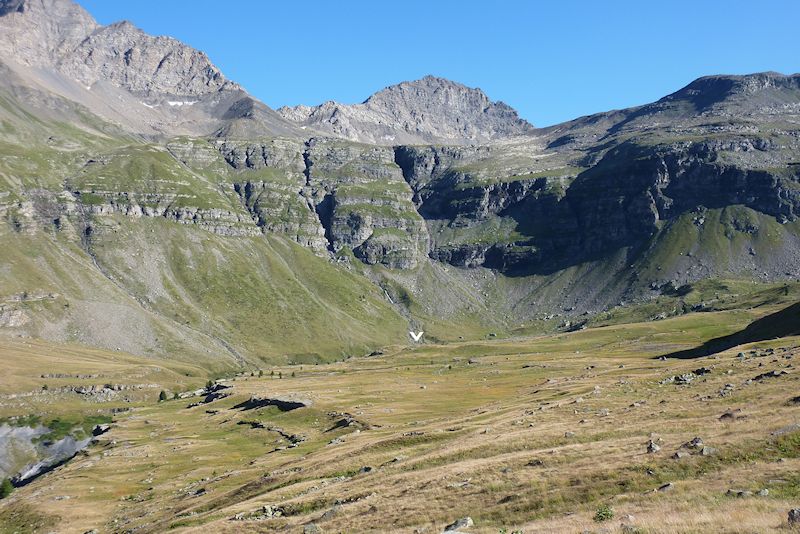
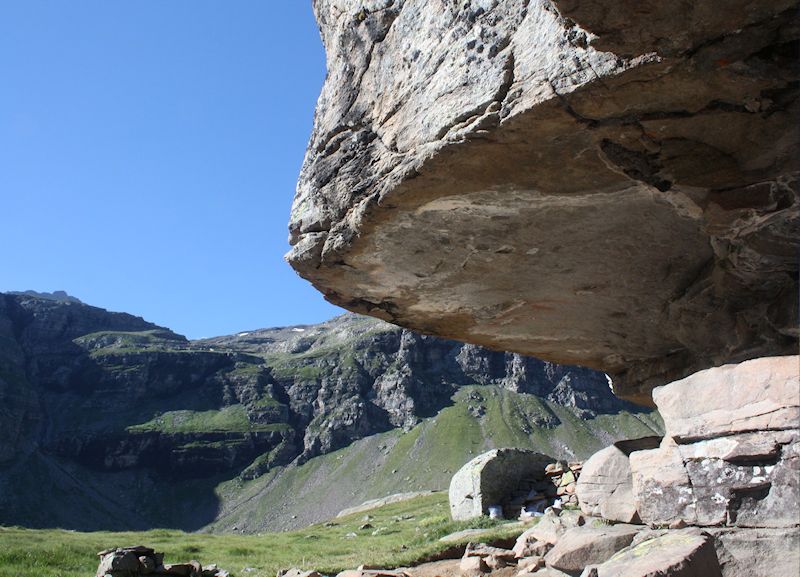
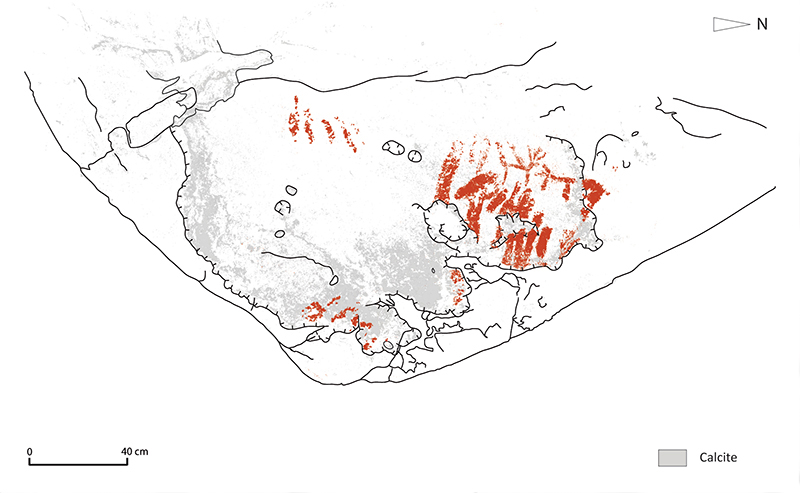
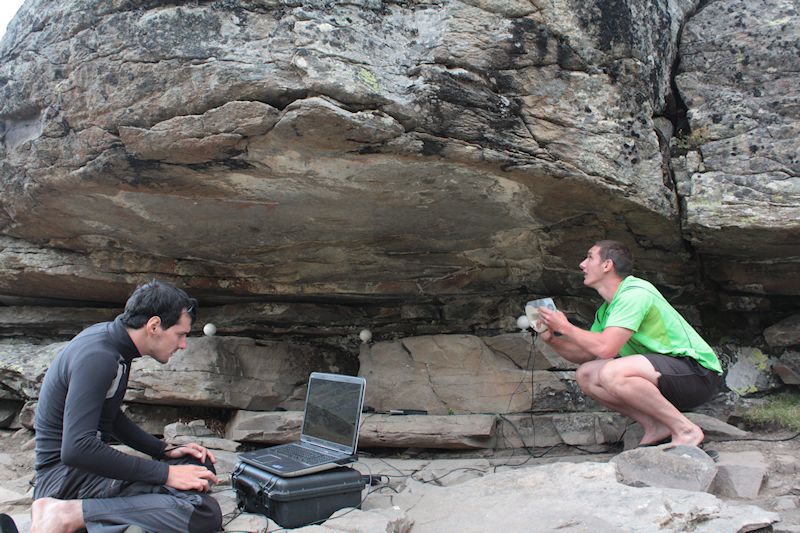
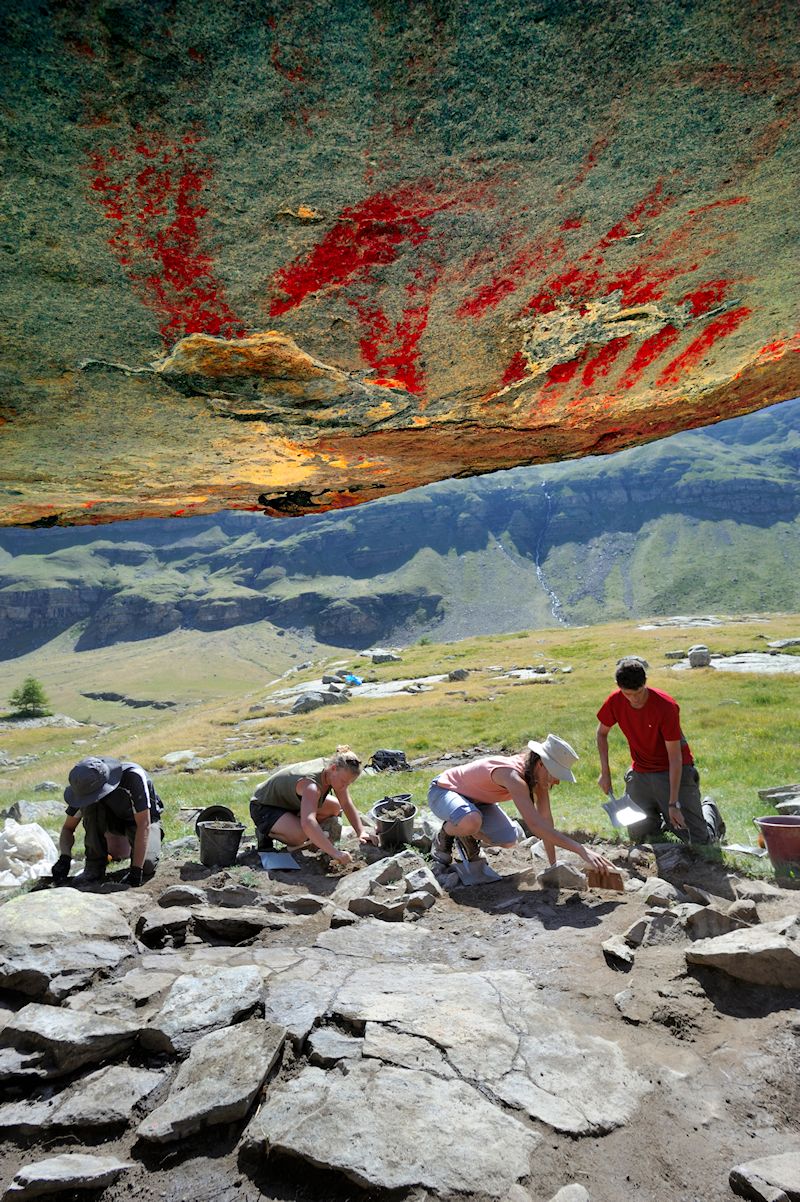
| Abri Faravel (marked with arrow) is a rock shelter in the Southern French Alps, 2133m above sea level. It was discovered fortuitously in 2010 by a team of French and British archaeologists. (Photo: K. Walsh) |  |
| The rock shelter and surrounding area had seen phases of human activity from the Mesolithic to the medieval period. However traces of prehistoric rock paintings were also discovered, making them the highest painted representations of animals (quadrupeds) in Europe. (Photo: K. Walsh) |  |
| Along with other marks, there appear to be two animal figures which have been interpreted as a deer facing a dog. A straight line, possibly an arrow or a spear, is painted in the back of the deer, evoking a hunting scene. (Image: C. Defrasne) |  |
| "We never expected to find prehistoric paintings in this exposed area that affords so few natural shelters. The scanning was logistically complex as our only source of electricity was car batteries, which, along with all of the scanning equipment, had to be carried up to the site." said Dr Kevin Walsh. It is quite probable that these scans are the highest undertaken in Europe. (Photo: K. Walsh) |  |
| Abri Faravel is a site that cannot be visited regularly owing to its location. The virtual model derived from the scans are part of this publication. With a computer game interface, you can also explore the landscape and the paintings of Abri Faravel. (Photo: Loïc Damelet, CNRS/Centre Camille Jullian; enhancement: C. Defrasne) |  |
This article explores ways to develop communication of archaeology for differing audiences, one of the aims of the NEARCH project under the EU Culture programme.